- FOXNews.com

When it comes to telling the rest of the world how it must behave in order to save the planet from environmental calamity, and lobbying for trillion-dollar solutions to those problems, no organization in the world makes greater claims to being the leading authority — and global arbiter — than the United Nations.
Except, it seems, when it comes to its own behavior as an environmentally friendly global citizen. There the U.N. system is, according to members of a special group of internal U.N. inspectors, in chaos.
Among other things, the group, known as the Joint Inspection Unit (JIU), found:
• U.N. efforts at setting internal guidelines on environmental housekeeping and management across its sprawling network of global organizations are "uncoordinated ad hoc efforts" that "continue to be scattered."
• Most of the environmental measures implemented by the central organs of its many funds and programs, not to mention the central U.N. secretariat, "are not based on any specific guidance and are not documented in a clear and transparent way."
• Almost all U.N. organizations, when queried, could not break out financial data on any measures or specific spending on environmental measures on their own account. One consequence, according to the inspectors: "the economic and ecological advantages to be derived" from new, efficient energy or recycling technologies "were not recognized" in U.N. bookkeeping.
"As a result, investments are based on incomplete information leading to suboptimal decisions." And those decisions tend to be "ad hoc and lacking in top leadership."
• When it comes to existing multilateral environmental agreements, or MEAs — international treaties for such things as preserving biodiversity, protecting wetlands and migratory species, and halting desertification — the U.N. officials responsible for implementing the agreements told the inspectors of a "lack of high-level support" from the organization's collective top leadership.
Indeed, the top leadership's emphasis on winning huge sums for global climate change made the guardians of existing treaties worry that their best staff would soon be hired away from them.
And elsewhere, in the document, the inspectors note that U.N. organizations "are not sure whether and how they should apply MEAs ... and other international environmental norms or standards formulated within and outside the United Nations system.'"
• When it comes to the U.N.'s own contributions to solving the global greenhouse gas problem, the organization's efforts are, according to the inspectors, not only unsystematic but sometimes indecipherable. The U.N. generates the equivalent of 1.741 million metric tons of carbon dioxide — defined by the U.N. itself as the world's most prevalent and pernicious greenhouse gas — every year (more than such countries as Mauritius Guyana and Laos). But it apparently doesn't have any administrative framework to handle the purchase of carbon offsets to balance its emissions, or even a systematic way to purchase or account for them.
According to the inspectors, U.N. procurement experts tasked with handling the offset transactions were apparently ignorant of the basics of the entire carbon offset business (which has been the subject of tens of thousands of hours of U.N.-sponsored conferences over the past decade, often with the aim of putting U.N.-sponsored organizations in charge of the offset trade). The ignorance has prevailed even while two U.N. interagency groups have been working to develop system-wide guidelines on "sustainable procurement."
The procurement officials observed by the JIU "were not well-versed in how to go about calling for bids, dealing with private brokers and assessing the viability of the offset projects they finance," the inspectors concluded. "They were also quite unaware of the scale of the fees charged by brokers." In some cases, the inspectors noted, "the spread of vendors' bids varied by 100 per cent."
• When it came to paying the tab for its own carbon emissions, U.N. accounting is incoherent, or opaque, or both. According to the inspectors, that tab could run to about $34.2 million annually at mid-2009 prices, but when it came to seeing how those carbon offset purchases were made across the U.N. system, the inspectors "have not been able to sort them out either in attribution of budget lines used for this purpose, or in terms of sources of financing."
These, and a variety of other less-than-flattering conclusions about the quality and coherence of the U.N.'s own environmental example, are contained in a 70-page report published last month with the numbing title of "Environmental Profile of the United Nations System Organizations: Review of their in-house environmental policies and practices."
The document was prepared by two members of the JIU, a special, independent group of experts elected by the General Assembly. The obscure JIU is the only U.N. organization mandated to examine the overall behavior of the proliferating U.N. system, which has grown far beyond the New York-based Secretariat to include some 50 funds, agencies, programs and other bodies around the world, a number that is still growing.
The JIU's decision to explore the U.N.'s environmental housekeeping was apparently inspired by Secretary General Ban Ki-moon himself, who announced in June 2007 that he intended to make the U.N. headquarters organization "climate neutral and environmentally sustainable," in line with the U.N.'s global agenda. Ban invited the chiefs of all the other major U.N. organizations to join in the effort; they took a similar pledge four months later.
With an eye to the Copenhagen conference on climate change slated for December 2009 — now remembered as a diplomatic fiasco — the U.N. heads, at Ban's behest, also vowed to offset their organization's carbon emissions, just as they wanted rich countries to do.
The major problem with implementing the U.N.'s big initiative, the JIU inspectors conclude, is that the U.N. never really thought it through, nor did the world organization behave as if it were a serious undertaking.
As the inspectors put it, in their customary dry and careful language, "no common understanding has been reached as to the long term commitment of the United Nations system to climate neutrality and how it can be implemented and regularly financed."
Instead, "the initiative has often been perceived as a personal agenda of the Secretary-General as it has never been discussed and endorsed in administrative and financial terms by Member States" through the General Assembly.
To be fair, the JIU inspectors do not see ill-will on the U.N.'s failure to "walk the talk" of green citizenship. Instead, the inspectors blame bureaucratic inertia, internal anarchy, lack of careful thinking, and especially lack of clear, system-wide rules as the main reasons for the high-minded mess.
The U.N., they note, has been trying to get its environmental household management together in one form or another since 2001. Yet "despite these efforts, ad hoc intergovernmental decisions and internal guidelines on environmental housekeeping and management continue to be scattered."
Most U.N. employees appeared to be enthusiastic about being environmentally responsible at work, but, the inspectors noted, "most of the senior officers interviewed stated that their staff did not have in-house rules and regulations readily available to address their environmental concerns."
The inspectors could point to some promising initiatives, like the 2007 effort, sponsored, fittingly enough, by the Nairobi-headquartered United Nations Environmental Program (UNEP) to hire an outside consultant to dissect its performance and recommend how to create a coherent environmental management system" for its HQ.
(Research for the JIU report apparently concluded before Fox News revealed last December that the U.N. via UNEP was creating a pilot project, named Greening as One, to actually make all U.N. offices climate neutral — but at a cost that the U.N. seemed determined to keep secret.
Nor did the inspectors think all of the U.N.'s environmental incoherence problems were of the organization's own making. Some U.N. member states, they noted, worried "about the potentially limited access for their national providers to the United Nations market" for goods and services if sustainable procurement was implemented.
But the U.N.'s habit of managing much of its procurement through projects devised in cooperation with national governments also made monitoring how the U.N. was spending its money to be "a challenge." The inspectors would like the U.N. to "increase the transparency and accountability" of its new sustainable procurement efforts.
But when it came right down to it, the U.N.'s big environmental problem, the inspectors felt, was a "lack of focus on in-house management issues." The U.N. needs to set up a "system-wide governance framework" to ensure that best practices are identified, and an organized way to share experience across the chaotic system in order to practice what it preached to the rest of the world.
To win its own Good Housekeeping seal of environmental approval, the U.N. also needs, the inspectors said, to "ensure greater accountability of United Nations system entities to Member States, the public and beyond."
The JIU's tough report is by no means the inspectors' only critique of the U.N.'s environmental competence. Only a year ago another JIU inspector issued an even more damning report that said the U.N.'s system of environmental management for the world at large was in the same chaotic shape as the JIU now diagnoses for its internal management.
Among other things, that report noted that the U.N.'s emphasis on "sustainable development" — merging anti-poverty programs with environmental protection — was starving actual environmental agencies of support, causing U.N. environmental mandates to proliferate without coordination, and creating a jungle of contending U.N. bureaucracies that made it impossible to even know how much the U.N. was spending to manage its environmental actions. (The "rough estimate": $1.65 billion.)
Part of the answer, the JIU inspector said then, was for Secretary-General Ban to provide the U.N. General Assembly with "a clear idea of the division of labor" among the jostling throng of competing bureaucracies.
With the U.N.'s external efforts at world "environmental governance" a seeming jumble, and its internal environmental management an apparent mess, the JIU's inspectors have made a striking case over the past year that one of the major environmental problems the world faces may be — the U.N. itself.
George Russell is executive editor of Fox News.
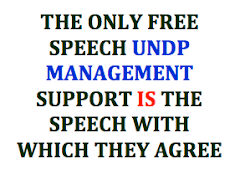



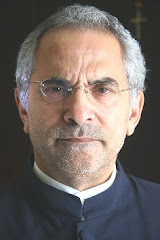

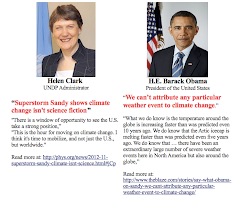














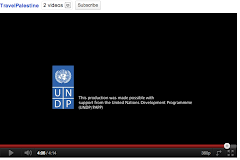

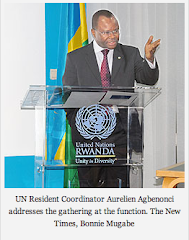



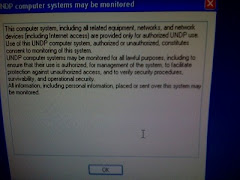

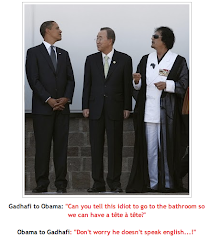
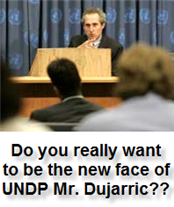





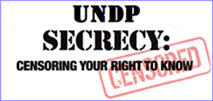
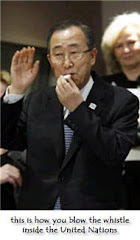
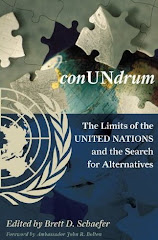

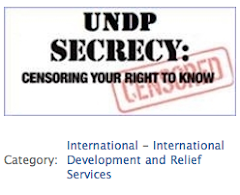



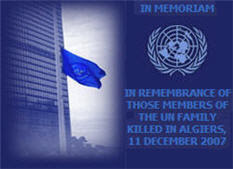



No comments:
Post a Comment